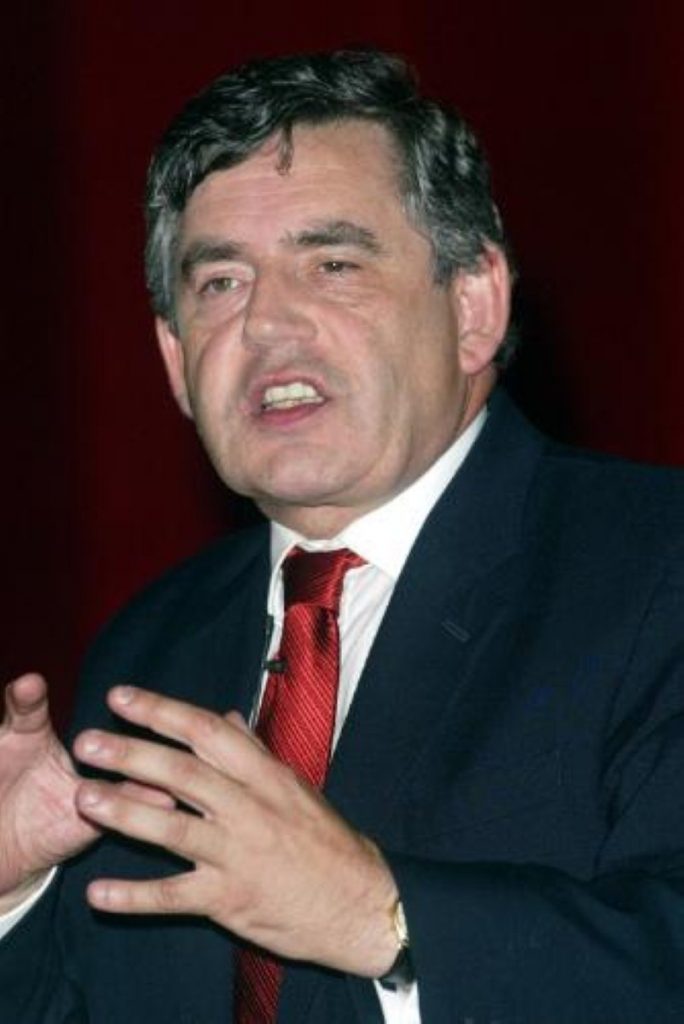Brown calls for ‘new style politics’
Gordon Brown today called for a new kind of politics based on consensus rather than “sterile party divides”.
In a mark of his commitment to a new style politics, he announced the appointment of three opposition MPs to advise his “government of all the talents”.
Conservative MPs Patrick Mercer and John Bercow will advise Labour ministers, along with Liberal Democrat backbecher Matthew Taylor.
But the prime minister argued politics should also look beyond Westminster and reengage and empower the public.


Mr Mercer, who was sacked from the Conservative frontbench over his comments on black soliders, will advise the government on security.
Mr Bercow has agreed to review services for children and young people with speech, language and communication needs, an area where he has a long-term interest.
And Mr Taylor, an MP in Cornwall has been asked to advise the government on land use and planning in rural areas.
Menzies Campbell welcomed Mr Taylor’s appointment, stressing he had been privy to the agreement.
Sir Menzies said: “I am delighted that Gordon Brown has once again recognised the knowledge and experience that Liberal Democrats have to offer in tackling major policy challenges that the government has proved unable to solve.”
Speaking to an audience in London of voluntary care sector representatives, the prime minister warned it could not be “business as usual” when parliament returns after October 8.
He said: “I believe that Britain needs a new type of politics which embraces everyone in this nation, not just a few. A politics built on consensus, not division. A politics that draws on the widest range of talents and expertise, not the narrow circles of power.
“Whether it is crime and gang violence, the future health of the nation or climate change, the solutions will not come simply from a narrow debate between states and markets.”
Mr Brown continued: “Only a new kind of politics can help us meet these challenges.
“When taking office I emphasised that the government must listen and learn. Now I say we must do more. We must engage and involve with people on the issues they face in their everyday lives.”
Mr Brown announced the extension of the government’s Citizens’ Juries scheme. At present these are only used to assess a number of contentious issues but Mr Brown said they should be more widely used to discuss issues affecting the country.
The first new-style Citizens’ Jury will be held this week to discuss issues affecting crime and young people.
The prime minister added: “Direct citizen involvement in policymaking can be the ally rather than the enemy of new representative democracy. The politics of our future can only be built by being fair to every single person in this country.”
The juries will be made up of 12 to 15 people assessing evidence from stakeholders. Mr Brown said they would allow the government to take advantage of the “wisdom and experience” of ordinary people.
In one of his first speeches as prime minister, Mr Brown called for widespread constitutional reform, including the prospect of a written constitution.
A nationwide system of Citzens’ Juries could be used to produce a statement of common values, laying the groundwork for a formal constitutional document.
Mr Brown also argued for a revival of the all-party Speakers’ Conference, which examines those issues that can be missed in party politics.
The Conservatives said it was important Mr Brown actually put his ideas into action.
Party chairman Caroline Spelman said: “He has talked about many of these ideas throughout the last ten years but failed to deliver on them. The government has announced the idea of Citizens’ Juries no less than 15 times since 1997.”
However, she said Mr Cameron was happy to work with the prime minister when the two leaders were in agreement, adding Mr Cameron had been aware of Mr Mercer and Mr Bercow’s plans to advise Labour.









